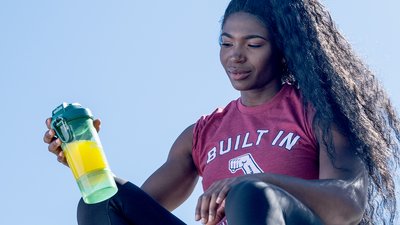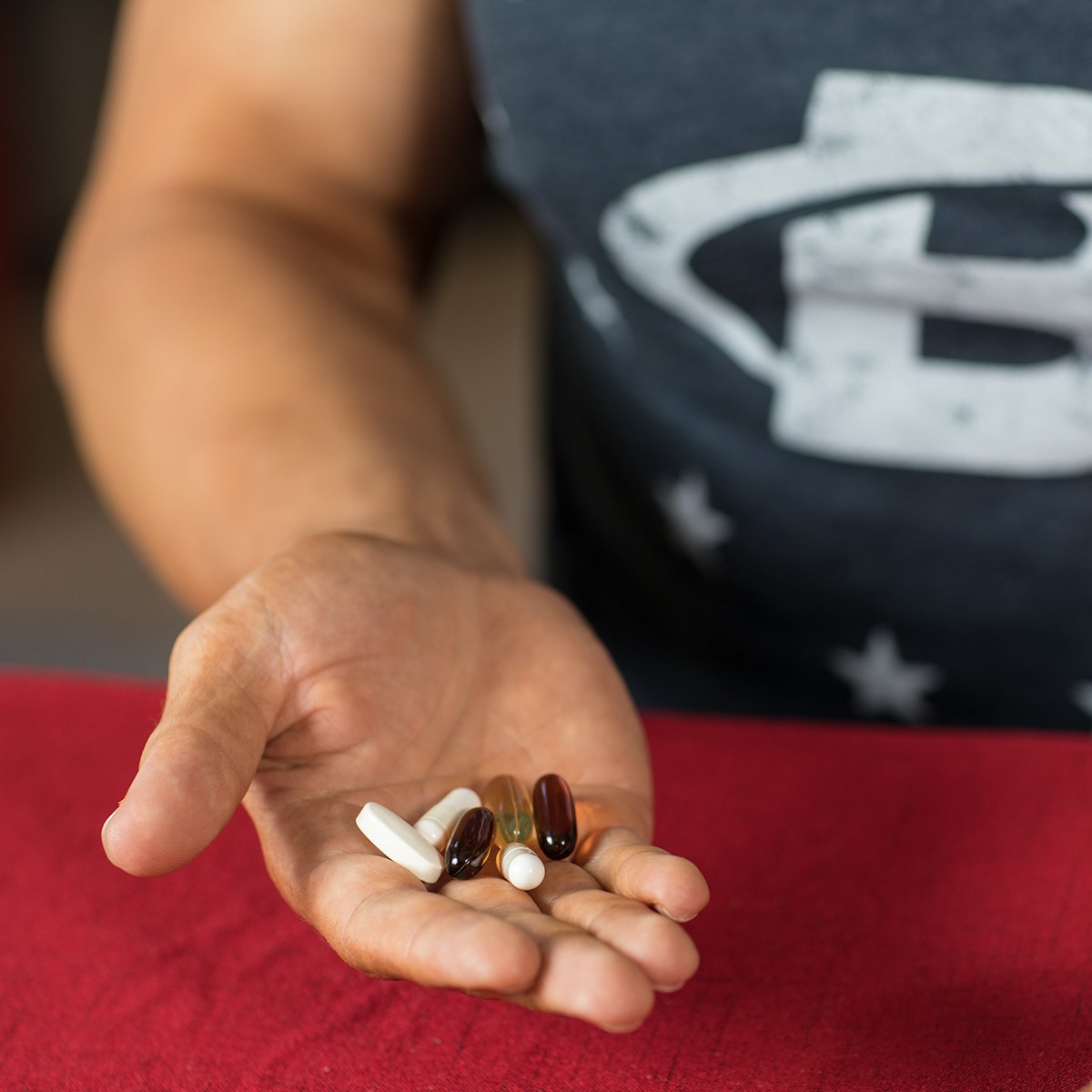More women are in the weight room than ever, training harder than ever, and that means more women than ever are taking supplements, too. We think it's high time this happened! But there are certain supplements, like pre-workouts, where the same rules and dosages that apply to one athlete may not always be the best for another.
Here's why: Research-recommended dosages of caffeine for athletic performance are generally based on body weight. The range that Douglas Kalman, Ph.D., RD, and co-founder of the International Society of Sports Nutrition, gives in Bodybuilding.com's Foundations of Fitness Nutrition course is 3-6 milligrams per kilogram of body weight, granting that it's highly personal—and that 6 milligrams is a serious dose that isn't appropriate for most people.
For a 55-kilogram (or 120-pound) woman, that's an "I feel it, but not too much" 165 milligrams of caffeine on the low end, or a "My eyes are bugging out of my head" 330 milligrams on the high end. And those are very different than for a 200-pound bodybuilder! Many popular pre-workouts, though, contain a fixed scoop of 300 or more milligrams per serving, regardless of how big you are.
This isn't necessarily a problem, but it's worth taking into consideration before you take a scoop of a random pre—and maybe end up feeling like your heart is beating out of your chest. Several companies on our list of the Best Women's Pre-Workouts make women-specific products with women's body size taken into account in the dosing.
"I always say, start small and then go up from there, just to see how well your body tolerates it," says Krissy Kendall, Ph.D. in the Bodybuilding.com Podcast episode "All About Caffeine: What Every Lifter Needs to Know." Translation: Try a half scoop, or even less, of popular pre-workouts to gauge your tolerance initially, and then customize subsequent doses.
As for the effectiveness of all the individual ingredients in pre-workouts, that doesn't change just because you use one locker room or the other. The increased energy, strength, endurance, and decreased muscle soreness that Jim Stoppani, Ph.D., creator of the Shortcut to Size program and others, says help caffeine make workouts better is just as true for women as for men. The same goes for common ingredients like citrulline malate and beta-alanine.
In one recent vote of support, A 2018 study published in the Journal of the International Society of Sports Nutrition confirms the fact that pre-workouts can "improve upper-body muscular endurance and anaerobic capacity [in women], while improving feelings of focus following high-intensity exercises."[8]
Sound familiar? Just figure out what dose works for you, and try for yourself.


